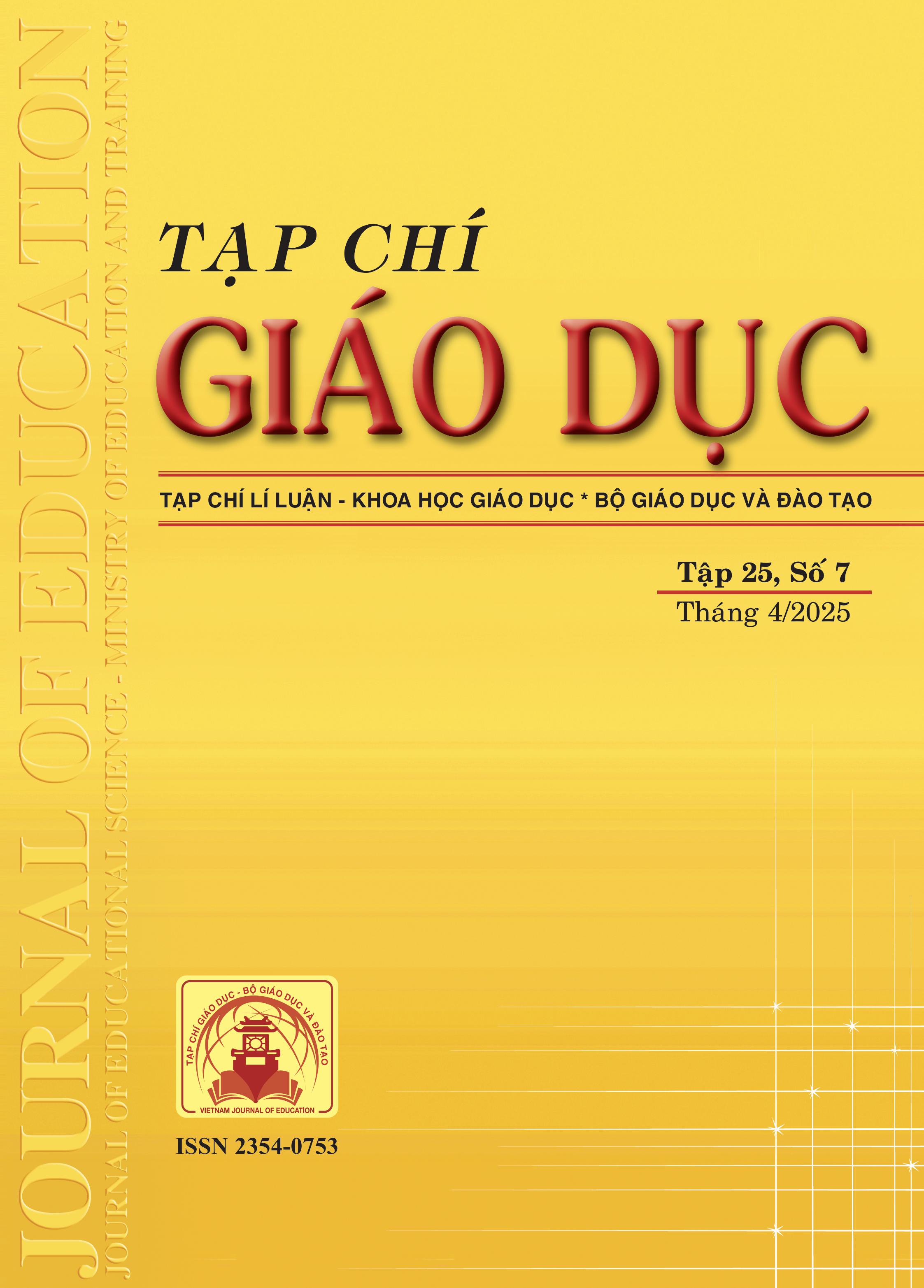Nhận thức của sinh viên về sự ủng hộ của cha mẹ đối với tính tự chủ của con: nghiên cứu tại một số trường đại học ở Thành phố Hồ Chí Minh
Tóm tắt
Autonomy is a basic human psychological need and is an important factor in achieving happiness, motivation and effectiveness in life. Therefore, parental support for child autonomy is critically important. The study surveyed parental support for their children’s autonomy, using the P-PASS scale on 343 students from several universities in Ho Chi Minh City. The results indicate that parents are more inclined to supporting their children’s autonomy than exerting psychological control. Regarding autonomy-supportive parenting styles among both fathers and mothers, allowing children to have choices within set boundaries was rated highest, followed by providing explanations for demands and limits, and lastly, acknowledging the children’s feelings. In terms of psychologically controlling parenting, which includes methods like punishment threats, guilt-inducing criticism, and performance pressure, both mothers and fathers tend to exert performance pressure on their children; mothers are more likely to employ guilt-inducing criticism, whereas fathers are more inclined to use punishment threats. The research findings open up perspectives on parenting methods and encourage autonomy, contributing to student success and happiness.
Tài liệu tham khảo
Barber, B. K. (1996). Parental psychological control: Revisiting a neglected construct. Child Development, 67(6), 3296-3319.
Chirkov, V. I., & Ryan, R. M. (2001). Parent and teacher autonomy-support in Russian and U.S. adolescents: Common effects on well-being and academic motivation. Journal of Cross-Cultural Psychology, 32(5), 618-635.
Grolnick, W. S., & Pomerantz, E. M. (2009). Issues and challenges in studying parental control: Toward a new conceptualization. Child Development Perspectives, 3(3), 165-170.
Mageau, G. A., Ranger, F., Joussemet, M., Koestner, R., Moreau, E., & Forest, J. (2015). Validation of the perceived parental autonomy support scale (P-PASS). Canadian Journal of Behavioural Science/Revue Canadienne des Sciences du Comportement, 47(3), 251-262.
Roth, G., Assor, A., Niemiec, C. P., Ryan, R. M., & Deci, E. L. (2009). The emotional and academic consequences of parental conditional regard: Comparing conditional positive regard, conditional negative regard, and autonomy support as parenting practices. Developmental Psychology, 45(4), 1119-1142.
Ryan, R. M., & Deci, E. L. (2000). Self-determination theory and the facilitation of intrinsic motivation, social development, and well-being. American Psychologist, 55(1), 68-78. https://doi.org/10.1037/0003-066X.55.1.6
Saïb, N., Joussemet, M., Cavenaghi, A., Robichaud, J. M., Geneviève A. M., & Koestner, R. (2024). Parental autonomy support and child psychosocial adjustment: examining the role of cultural hierarchy. International Journal of Child, Youth and Family Studies, 15(2), 1-31.
Šakan, D., Žuljević, D., & Rokvić, N. (2020). The Role of Basic Psychological Needs in Well-Being During the COVID-19 Outbreak: A Self-Determination Theory Perspective. Public Health.
Van der Kaap-Deeder, J., Vansteenkiste, M., Soenens, B., & Mabbe, E. (2017). Children’s daily well-being: The role of mothers’, teachers’, and siblings’ autonomy support and psychological control. Developmental Psychology, 53(2), 237-251.
Van Petegem, S., Vansteenkiste, M., & Beyers, W. (2013). The jingle-jangle fallacy in adolescent autonomy in the family: In search of an underlying structure. Journal of Youth and Adolescence, 42(7), 994-1014.
Vasquez, A. C., Patall, E. A., Fong, C. J., Corrigan, A. S., & Pine, L. (2016). Parent autonomy support, academic achievement, and psychosocial functioning: A metaanalysis of research. Educational Psychology Review, 28(3), 605-644.
Zamzami, Z, & Corinne, J. (2019). Exploring students’ competence, autonomy and relatedness in the flipped classroom pedagogical model. Journal of Further and Higher Education, 43(1), 1-12.
Tải xuống
Đã Xuất bản
Cách trích dẫn
Số
Chuyên mục
Giấy phép

Tác phẩm này được cấp phép theo Ghi nhận tác giả của Creative Commons Giấy phép quốc tế 4.0 .












